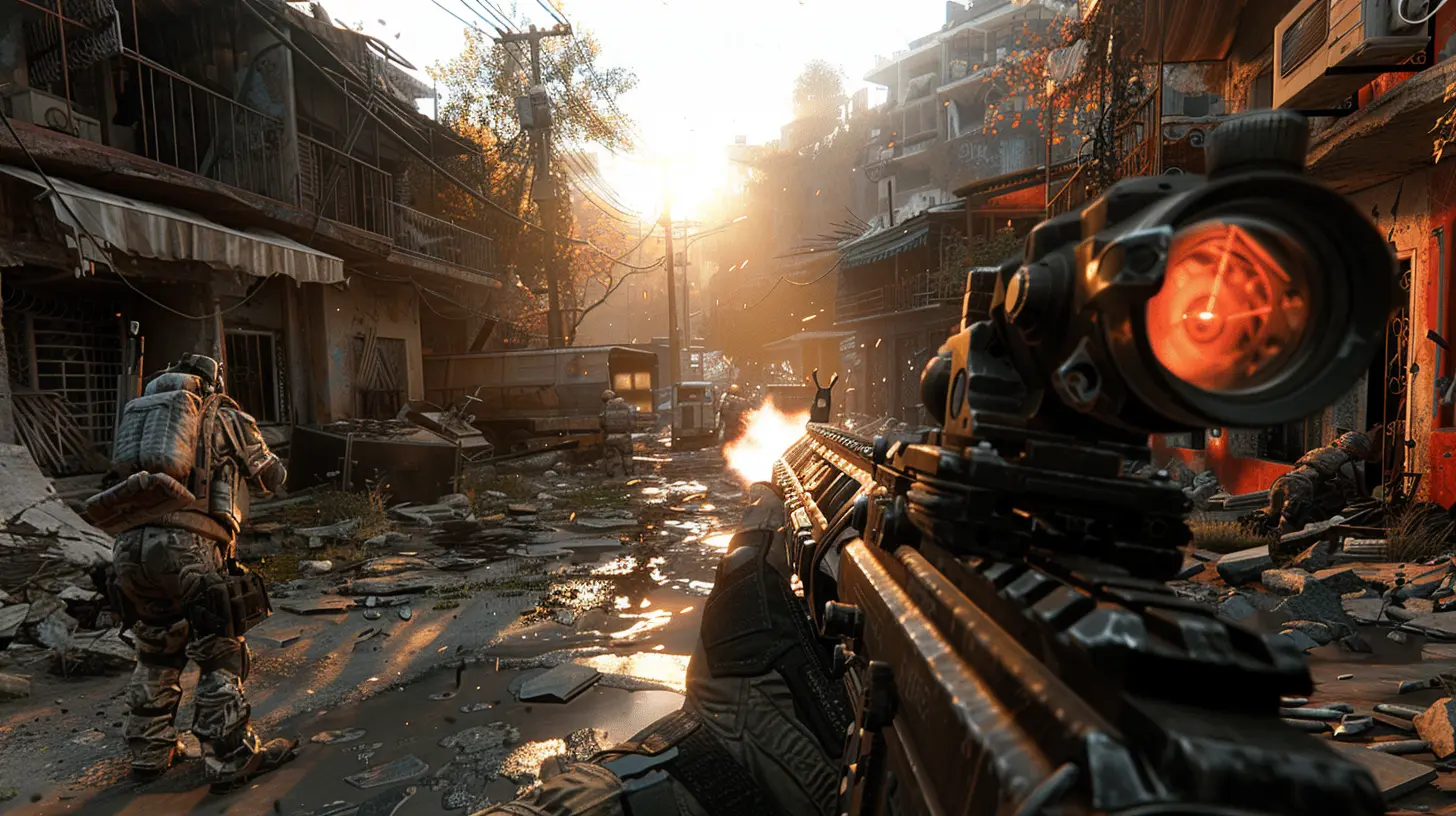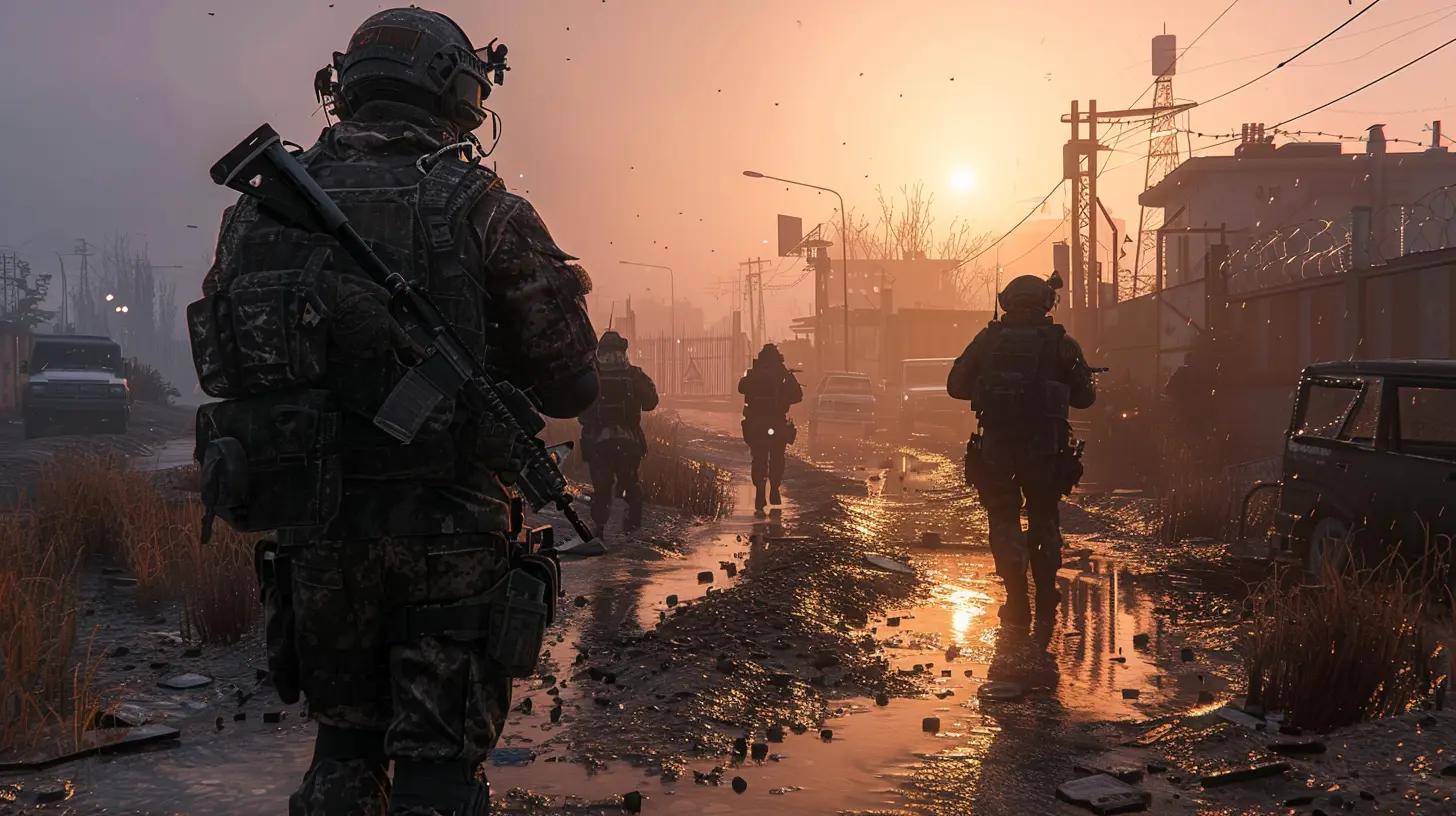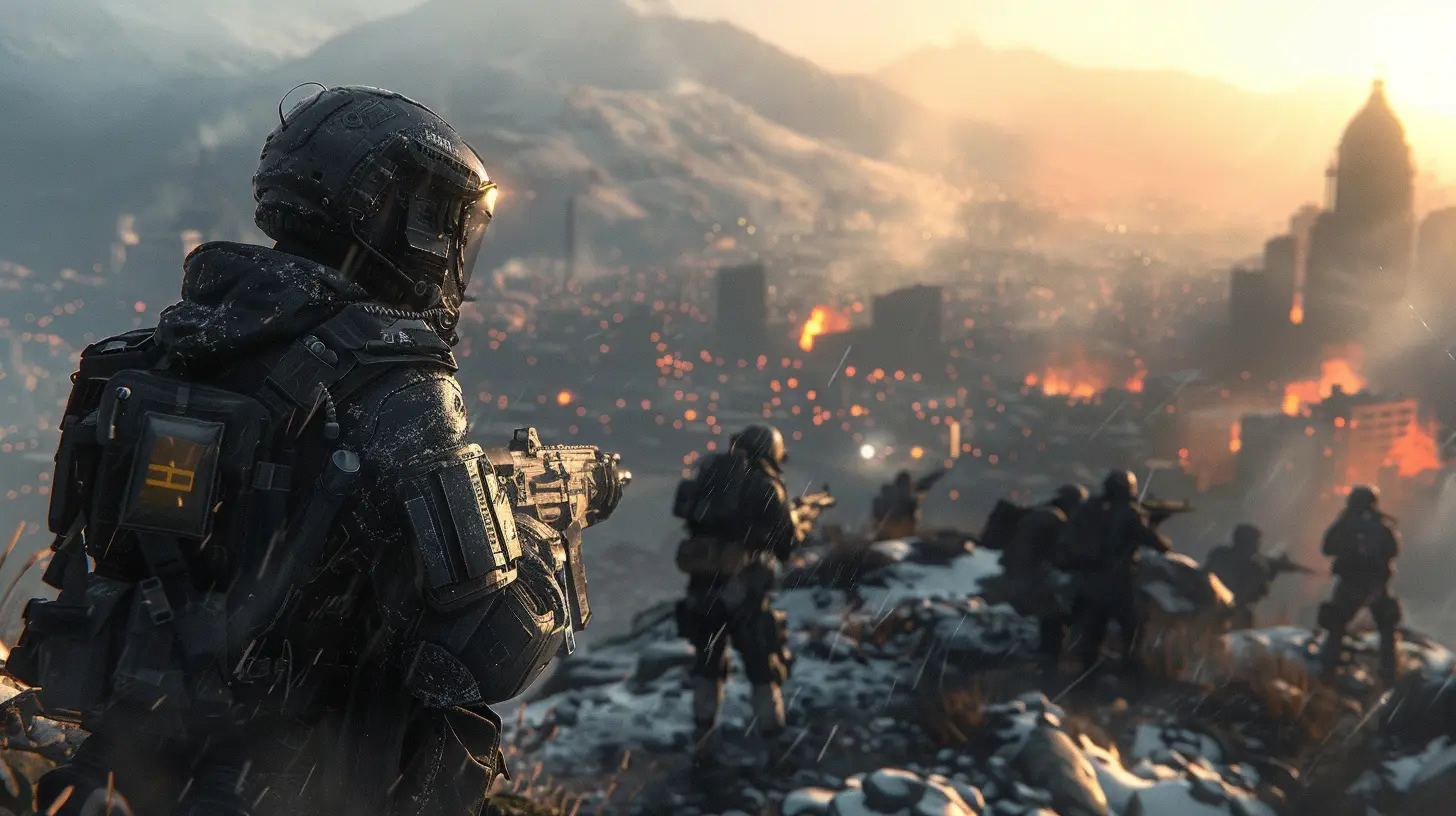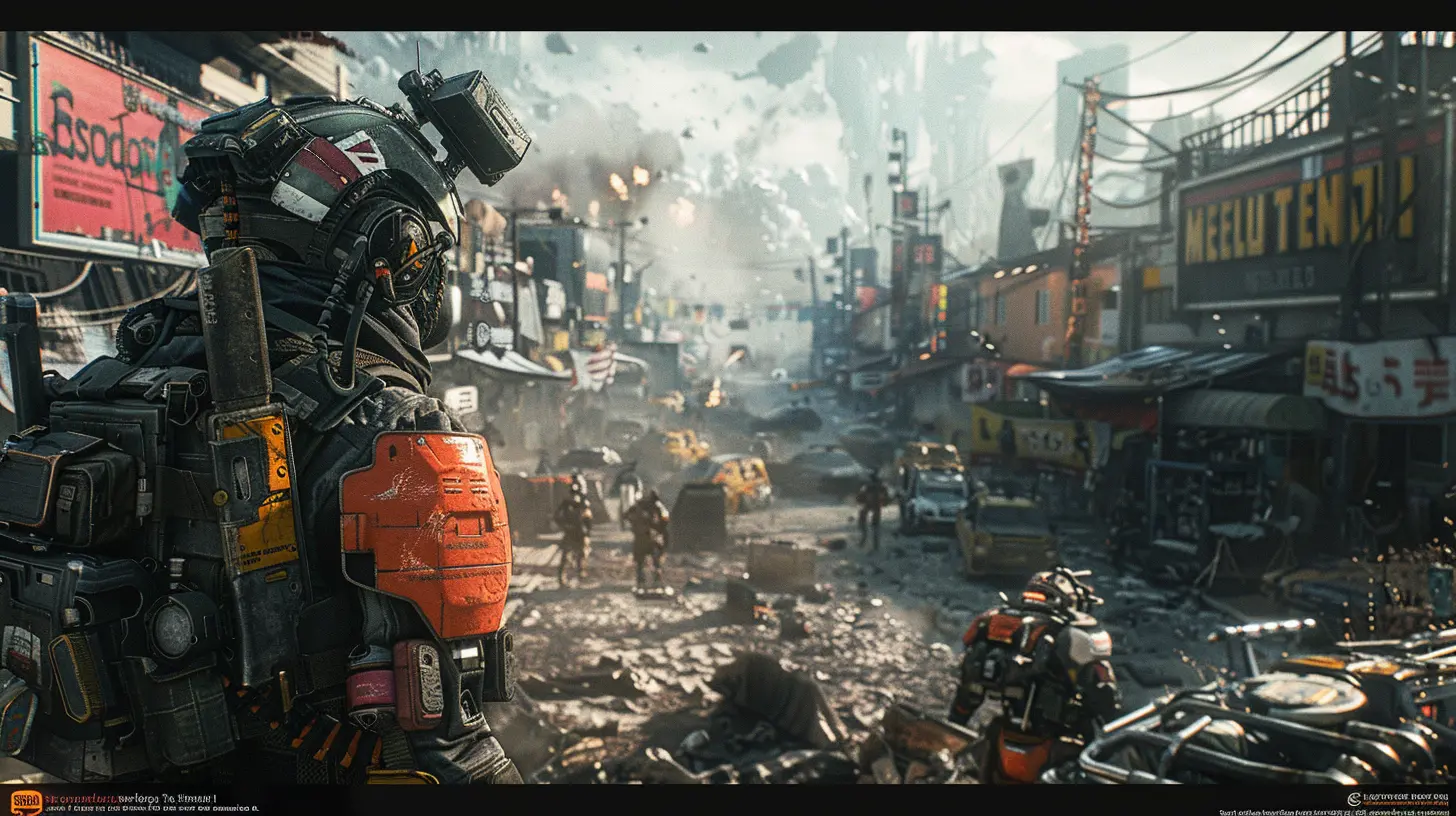The Importance of Communication in FPS Team Play
10 April 2025
Alright, let's cut to the chase: if you've ever played an FPS (First-Person Shooter) game with a team that communicates like a pack of mimes... you know how quickly things spiral into chaos. One minute you're charging into the enemy’s base thinking you’re Rambo, and the next, you're wondering why your backup is off chasing butterflies in the opposite direction. Sound familiar? Yeah, it’s a pain.
So, buckle up, reload your weapons, and throw on your headset—because today, we’re diving into why communication in FPS team play is so important. Not to sound dramatic, but without it, you might as well be a lone wolf in a game where teamwork makes or breaks the dream.
Why Communication Is the MVP of Team Play
Imagine trying to win a soccer match where no one talks. The goalie’s juggling pineapples, the striker's playing freeze tag, and everyone’s collectively lost the plot. FPS games aren’t that different. The whole point is to work together, and guess what? That requires communication.It’s the magic glue that holds a team together, preventing chaos, rage quits, and shattered keyboards. Whether you’re playing Valorant, Call of Duty, or Counter-Strike: Global Offensive, good comms can turn a mediocre squad into an unstoppable force. Bad comms? Well, they’ll leave you crying into your Doritos.
The Benefits of Talking (and Actually Listening)
Let’s break it down. Here’s what strong team communication does for you:1. Better Strategy Execution
You know when someone yells, "I’m flanking left, cover me!" and suddenly, the team shifts into action like a synchronized swimming squad? That’s communication at its finest. You’re not just running around like headless chickens; you’re playing with a purpose.Good communication ensures every player knows the plan. Whether it’s rushing the objective or baiting the enemy into a trap, talking keeps everyone on the same page.
2. Faster Reaction Times
The enemy team’s got an AWP (you know, the scary one-shot sniper), and they’re holding down mid. Without a teammate calling it out, you’d blindly stroll into their crosshairs faster than you can say, "Oops."A heads-up from a teammate means you can adapt your playstyle, avoid danger, and maybe even pull off a sneaky counterplay. Communication literally saves lives—well, virtual lives, but still.
3. Mood Booster
Ever notice how silent teams feel... awkward? Like showing up at a party and nobody’s talking? It’s weird, and it kills the vibe.Even if you're losing, good comms keep morale high. Jokes, quick calls, and even the occasional good-natured roast can make the game way more fun. Plus, when everyone’s in a better mood, they tend to play better. Coincidence? I think not.
The Different Types of Comms (And Why They Matter)
Not all communication is created equal. Let’s talk about the different flavors of comms, so you don't end up being the guy screaming "WATCH OUT!" into the mic for no reason.1. Informative Comms
These are the bread and butter of good team play. Quick, clear, and useful information that helps everyone. Stuff like:- "Enemy pushing B site."
- "Bomb’s planted at A."
- "I’m covering mid; rotate to A."
Think of these as the Google Maps directions of FPS games: concise, to the point, and life-saving.
2. Strategic Comms
These are the big-brain moves. When you’re calmly planning a strategy instead of panic-screaming, "WE’RE ALL GONNA DIE!" For example:- "Let’s fake A and then rotate to B."
- "Can someone smoke mid so I can push?"
Strategic comms turn random gameplay into actual teamwork. It’s like playing chess, but with guns. (And honestly, way more fun than actual chess.)
3. Positive Reinforcement
Yes, this is a thing. Nobody likes a Debby Downer or a Captain Complains-A-Lot going, "We’re doomed!" every five seconds. A simple "Good shot!" or "Nice clutch!" can boost confidence, improve morale, and remind your teammates that they’re not playing with a potato.
The Dark Side of Bad Comms
Okay, let’s address the elephant in the room: bad communication. It’s not just unhelpful—it’s downright toxic. Here are some examples of comms to avoid at all costs:1. The Over-Communicator:
This person gives a play-by-play of everything they’re doing. "I’m reloading. Okay, now I’m walking. Oh wait, I think I see someone. Nope, just a shadow." We get it, Karen. Chill.
2. The Silent Treatment:
The teammate with no mic, who pings once every 30 minutes and contributes nothing to the team discussion. Bro, are you even awake?
3. The Rager:
The guy who yells, screams, and hurls insults the second anything goes wrong. Nothing says "toxic" like someone blaming their entire team for their own mistakes.
4. The Backseat Gamer:
The unofficial coach who spends more time telling people how to play than actually, you know, playing. Thanks for the advice, Phil Jackson, but maybe focus on hitting your shots first?
Tips for Improving Team Communication
Now that we’ve dunked on bad comms, let’s talk about how to level up your own communication skills. Even if you’re naturally the quiet type, these tips can help you become the teammate everyone loves:1. Keep It Simple
You’re not delivering a TED Talk. Short, clear sentences work best. Instead of saying, "I think we should consider carefully pushing through this area, although there might be enemies nearby," try, "Push B, careful of snipers."2. Use Callouts
Learn the map callouts. Nobody knows what "that spooky hallway thingy near the thing" means. Every FPS map has predefined areas with names—use them. If you don’t know the names, Google is your friend.3. Stay Positive
Even when you’re losing, keep it chill. Encouragement goes a long way. "Good try, we’ll get them next round" is leagues better than "Wow, you suck." Pro-tip: Nobody likes a jerk.4. Listen, Don’t Just Talk
Communication is a two-way street. If someone’s giving useful info, don’t talk over them or ignore it. Acknowledge it and act on it. Seriously, good listening is like the peanut butter to good talking’s jelly.But What If You’re Shy?
Not everyone’s comfortable talking to strangers online; I get it. The idea of grabbing a mic and yelling "ENEMY AT MID!" can sound stressful. But trust me, it gets easier. Start small! Maybe just call out a bomb plant or warn your team about an enemy. Baby steps.Also, nobody’s asking you to recite Shakespeare or deliver a speech worthy of an Oscar. Just say what’s useful. And if all else fails, use the ping system—it’s there for a reason!
Final Thoughts: Teamwork Makes the Dream Work
At the end of the day, FPS games aren’t just about who’s got the best aim or the flashiest skins. They’re about working together, coordinating strategies, and hyping each other up when needed. Communication is the backbone of team play—skip it, and you’re setting yourself up for a world of frustration.So, the next time you load into a match, put on your best “team player” hat, grab your mic, and start talking. Your team will thank you. (And hey, maybe you won’t have to hear "FFS, where’s my backup?!" every five minutes.
all images in this post were generated using AI tools
Category:
First Person ShooterAuthor:

Tina Fisher
Discussion
rate this article
4 comments
Zevonis Dorsey
Great article! Communication really is the backbone of teamwork in FPS games. A quick callout or a well-timed laugh can turn the tide of battle. Let’s keep those mics buzzing!
May 15, 2025 at 2:29 AM

Tina Fisher
Thank you! I completely agree—effective communication is crucial for success in FPS games. Let's keep the teamwork strong!
Georgia Johnson
Teamwork in FPS: shouting at each other improves accuracy, right?
April 19, 2025 at 3:29 PM

Tina Fisher
While shouting can increase energy, clear and calm communication is far more effective for teamwork and accuracy in FPS games.
Julianne Jacobs
Great insights! I'm curious how different communication styles impact team performance in FPS games. Do you think voice chat or in-game markers are more effective in high-pressure situations?
April 17, 2025 at 4:22 AM

Tina Fisher
Thank you! In high-pressure situations, voice chat often allows for quicker and clearer communication, while in-game markers can help convey information without disrupting gameplay. The effectiveness can depend on team dynamics and player preferences.
Carmel McKnight
Great article! Communication is indeed crucial in FPS games, enhancing teamwork and strategy. Balancing voice chat with non-verbal cues can lead to even better coordination and a more enjoyable gaming experience.
April 15, 2025 at 4:36 PM

Tina Fisher
Thank you! I'm glad you found the article insightful. I agree—balancing different communication methods can truly elevate team performance in FPS games!



